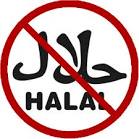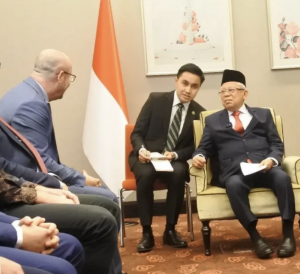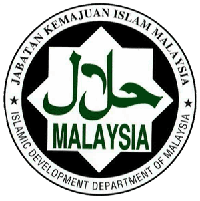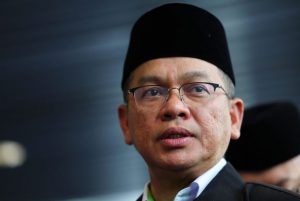By Zakiah Koya and Mazwin Nik Aziz – The Star
PETALING JAYA: The meat cartel scandal which has raised suspicion on imported halal meat in the country happens due to corruption and the Department of Islamic Development Malaysia (Jakim) is not to be blamed, say halal industry players.
The scandal, which the players said happens every now and then, involves corruption at several levels and authorities investigating the issue should look at all others in the import chain.
“Halal is not the issue in the meat cartel as Jakim is not in charge of imported meat. The issue is corruption, ” said Datuk Shukri Abdullah, the founder of the world’s biggest halal trade exhibition, Malaysian International Halal Showcase (Mihas).
He said imported meat goes through port authorities, Customs, and the Malaysian Quarantine and Inspection Services Department (Maqis).
“These three are the main channels which the meat has to pass through before it reaches the AP holders.
“Jakim can only go in and check the premises once in a while and every two years, all halal certificates have to be renewed. This is a stringent process, some takes up to six months.
“It is not right that Jakim is made to bear the brunt for the meat cartel as the halal logo was even falsified, ” he said responding to calls from the Malay Consultative Council advisory board member Tun Hanif Omar for Jakim to be revamped and relinquish its duty in issuing halal certification and the role be taken over by the Malaysian Halal Council.
Shukri said halal certification was a big business in many countries and in Malaysia, Jakim was put in charge of handling it and not for profits.
He said the cost of halal certification was cheap which was less than RM1,500 as the government subsidised it that many do not realise.
“By killing Jakim, many would be able to make halal certification into a big money spinner if they get the contract. This was tried before.
“The contract to issue halal certification was given to a private company and many were angry as it became very expensive and Jakim decided to take it back.
“A government agency – Halal Development Corporation – later took over the task and they too failed and it was back to Jakim once again, ” he said.
Malaysian Halal Professional Board trainer Ahmad Aminurrasyid said Jakim has no powers to investigate or prosecute those who were involved in such syndicates as their role was merely as the producer of the halal certificates.
“The halal meat import permit for livestock is issued by the Department of Veterinary Services and the meat enters Malaysia through Customs and Maqis.
“The company and business licences of companies handling imported halal meat are issued by local councils and the Companies Commission of Malaysia.
“The forging and abuse of the halal logo comes under the purview of the Domestic Trade and Consumer Affairs Ministry.
“So, why is Jakim the one that needs to be revamped over this meat cartel?” asked Ahmad who has been in the halal industry in various roles for more than a decade.
Meanwhile, several witnesses who are employees of the companies involved in the cartel, were called by the Malaysian Anti-Corruption Commission (MACC) for their statements to be recorded.
MACC chief Datuk Seri Azam Baki said they wanted to interview several other witnesses but it seems that they have gone off radar.
“We cannot locate or contact them, ” he told The Star yesterday, adding that with the cooperation of other agencies, MACC managed to get hold of documents for it to go through to see if there were elements of corruption.
Azam pointed out that MACC’s investigations into the case was to determine if there were elements of corruption involved in the process of importing the meat.
“Let it be clear that we are not investigating or determining the halal status of the produce.
“Our scope of investigation is to identify wrongdoings such as submitting false claims, corruption and power abuse, which allowed the goods to be brought into the country, ” he said.
Azam said the MACC had sought the cooperation of other authorities, including the Domestic Trade and Consumer Affairs Ministry, Customs and Maqis to probe the matter.
Recently, authorities busted a cartel that had been importing meat from Ukraine, Brazil, Argentina and China, and packaged them with the halal logo.
The cartel, believed to have been operating for a few years, allegedly used a warehouse in Senai, Johor as a location to make fake labels and stamps to be pasted on packages of uncertified halal status meat.
Deputy Domestic Trade and Consumer Affairs Minister Datuk Rosol Wahid told the Dewan Negara on Tuesday that tests on frozen meat taken from the warehouse showed that it was not pork, horse or kangaroo meat.
This was the outcome of the tests carried out by the Chemistry Department on samples of frozen meat taken from the warehouse, he said.



